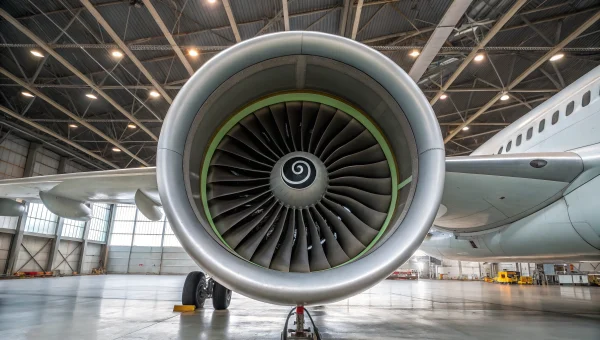The advanced ceramics industry encompasses a wide range of materials characterized by their unique properties, including high strength, thermal resistance, and chemical stability. These materials, which include oxide ceramics, carbide ceramics, and ceramic matrix composites, are notable for their applications across various sectors such as aerospace, automotive, medical, and electronics. The versatility and performance of advanced ceramics make them integral to innovations in high-performance technologies, from turbine blades in aircraft to biocompatible implants in medicine.
Table of Contents
Advanced ceramics are particularly valued for their ability to withstand extreme temperatures and corrosive environments, allowing for enhanced durability and efficiency in demanding applications. For instance, in the aerospace sector, they are utilized in engine components to improve performance and reliability, while in the automotive industry, they contribute to advancements in thermal management and safety features. The use of advanced ceramics in medical applications, such as orthopedic implants and dental prosthetics, underscores their importance in improving patient outcomes and reducing failure rates. Despite their advantages, the advanced ceramics industry faces several challenges, including high production costs and technical complexities associated with manufacturing. These factors can limit accessibility, particularly in developing markets. Additionally, regulatory hurdles and the need for rigorous testing before commercial deployment further complicate the adoption of these materials in critical applications. Nevertheless, ongoing research and technological innovations are driving growth, particularly in areas such as additive manufacturing and sustainable practices, positioning the industry for future advancements and broader applications.

What Are Advanced Ceramics?
Advanced ceramics, also known as technical or engineering ceramics, are high-performance materials designed to meet the demanding requirements of modern industries. Unlike traditional ceramics, advanced ceramics are engineered to exhibit exceptional properties such as high temperature resistance, wear resistance, and electrical insulation. These materials are widely used in industries where reliability and performance are critical.
Key Applications of Advanced Ceramics
Advanced ceramics are revolutionizing industries with their unique properties. Here are some of the most important applications:
1. Aerospace Industry
Advanced ceramics play a crucial role in the aerospace industry, where materials must withstand extreme conditions.
Applications:
Turbine blades and engine components.
Thermal protection systems for spacecraft.
Radar-transparent radomes for aircraft.
Why Advanced Ceramics?:
High temperature resistance (up to 2000°C).
Lightweight, reducing fuel consumption.
Excellent wear resistance in harsh environments.

2. Medical and Healthcare
In the medical field, advanced ceramics are used for their biocompatibility and durability.
Applications:
Dental implants and crowns.
Orthopedic implants (e.g., hip and knee replacements).
Surgical instruments and cutting tools.
Why Advanced Ceramics?:
Biocompatible, reducing the risk of rejection.
Resistant to corrosion and wear.
Non-magnetic, making them safe for MRI scans.
Explore our medical ceramic products.
3. Electronics and Semiconductors
Advanced ceramics are essential in the electronics industry for their electrical insulation and thermal conductivity.
Applications:
Substrates for integrated circuits.
Insulators for high-voltage power transmission.
Sensors and actuators in smart devices.
Why Advanced Ceramics?:
Excellent electrical insulation.
High thermal conductivity for heat dissipation.
Stability in extreme environments.
Discover our ceramic solutions for electronics and semiconductors.
4. Automotive Industry
The automotive industry relies on advanced ceramics for improved performance and efficiency.
Applications:
Catalytic converters for emission control.
Sensors for engine management systems.
Brake discs and pads for high-performance vehicles.
Why Advanced Ceramics?:
High wear resistance, extending component lifespan.
Lightweight, contributing to fuel efficiency.
Thermal stability under extreme conditions.
Check out our automotive ceramic components.
Why Choose Advanced Ceramics?
Advanced ceramics offer unparalleled advantages over traditional materials. Here’s why industries are switching to ceramics:
High Temperature Resistance: Ideal for extreme environments.
Exceptional Durability: Long-lasting performance with minimal maintenance.
Corrosion Resistance: Perfect for harsh chemical environments.
Lightweight: Reduces overall system weight, improving efficiency.
Biocompatibility: Safe for medical and healthcare applications.
Real-World Examples of Advanced Ceramics
Here are some real-world examples of how advanced ceramics are making a difference:
Aerospace: NASA uses ceramic matrix composites (CMCs) in rocket engines to withstand extreme heat.
Medical: Zirconia ceramics are widely used in dental implants due to their strength and biocompatibility.
Electronics: Silicon nitride ceramics are used in semiconductor manufacturing for their thermal and electrical properties.
Automotive: Porsche uses ceramic brake discs in high-performance sports cars for superior braking performance.
FAQ About Advanced Ceramics
1. What are advanced ceramics made of?
Advanced ceramics are typically made from inorganic, non-metallic materials such as alumina, zirconia, silicon carbide, and silicon nitride. These materials are processed under high temperatures to achieve their unique properties.
2. How do advanced ceramics compare to traditional ceramics?
Unlike traditional ceramics, advanced ceramics are engineered for specific applications. They offer superior strength, durability, and resistance to extreme conditions, making them ideal for industrial use.
3. Are advanced ceramics expensive?
While advanced ceramics can be more expensive than traditional materials, their long lifespan and performance often result in cost savings over time.
4. Can advanced ceramics be customized?
Yes, advanced ceramics can be tailored to meet specific requirements, including shape, size, and material properties.
Ready to Transform Your Engineering Solutions?
Interested in learning more about how advanced ceramics can benefit your industry? Contact us today for a consultation! Our experts are ready to help you find the perfect ceramic solution for your needs.

